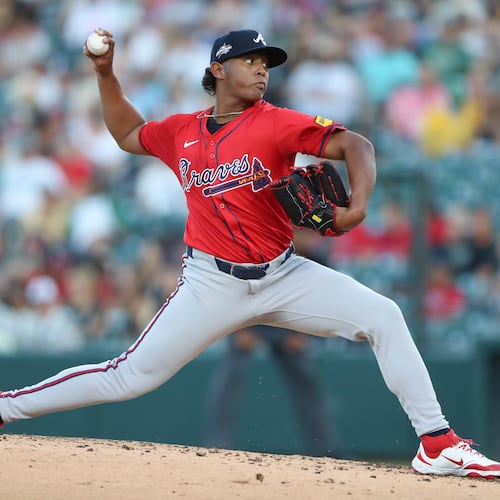To be clear, starting pitchers are not like party guests or certain family members on the holidays. You want starters to linger as looong as possible. No, no, don’t leave yet. The more innings the better it is for everybody.
Which brings us to Brian Snitker’s chief complaint. The Braves starters, with Max Fried the glaring exception, are not hanging around an appropriate amount of time. Fortunately, they are not paid by the hour.
The numbers are all backwards. Through 24 games entering Tuesday night’s game, Braves pitchers have thrown 205 innings. A majority of those – 105 1/3 – belong to the bullpen. The starters, the ones who are supposed to shoulder more of the load, have accounted for 99 2/3 innings.
The Braves’ rotation ranks 25th in MLB in innings-per-start, and 24th with an aggregate ERA of 5.42. Little wonder there is considerable chatter about the Braves trying to trade for help before the deadline at the end of the month.
It may be a drastically shortened season, but can such a balance be sustained for 60 games without fraying the ’pen?
“It’s tough,” Snitker said.
“I think we’ve done a really good job of spreading this thing out here (between rotation and the bullpen),” he continued. “It’s tough on the bullpen because it’s hard to establish roles. When you get (abbreviated starts), it’s all hands on deck and you’re surviving the game and everybody’s got to be ready all the time. These guys, they like to get roles. You get roles when you have good starting and consistent starting. It’s hard to establish that when you don’t because you’re trying to survive so much of the time.”
That Braves starters have averaged just a little more than four innings per outing would look even worse if you factored out Fried’s five starts this season, and his nearly six-inning-per-game average.
When it came time to determine a starter for Tuesday night’s game against Washington, Snitker sought someone who might last a little longer than cotton candy in the rain. He settled on a veteran thrower of strikes, Josh Tomlin, because, “we feel like he can stretch the game for us a little bit.”
The Braves have been able to get by through these first 24 games because of the versatility of their relievers, guys who are more than situational pitchers, capable of bridging more than one inning if necessary.
“With the starts we’re getting, it’s really, really good that we have a lot of those guys,” Snitker said Tuesday of his ’pen. “Obviously we’re not stretching our starts really well. That’s not a healthy formula. We’ve done really, really well with it, done a great job with the bullpen, but it’s not a healthy formula. You need your starting pitching to shoulder most of the workload and we’re not doing a good job of that right now.”
Wednesday’s starter Kyle Wright is an example of youthful inconsistency in the rotation. Three of his four outings, including his most recent one, have been three innings or less.
His remedy: “It’s pretty simple – minimize the walks, and from that point on I’ve got good-enough stuff and we have good-enough defense that I’m going to find a way to get deep into a game,” Wright said. “It’s as simple as that. Attack better and minimize those walks and make them earn their way on base.”
This is a subject even the unfailingly positive Snitker has difficulty with.
Asked what he’s looking for in a starter, he said, “You’d love for them to get in the seventh inning. Shoot, the way we’re going, I’d love for them to get into the fifth inning.”
You know, stay awhile. It’s not like you have anywhere else to go.
About the Author
Keep Reading
The Latest
Featured


